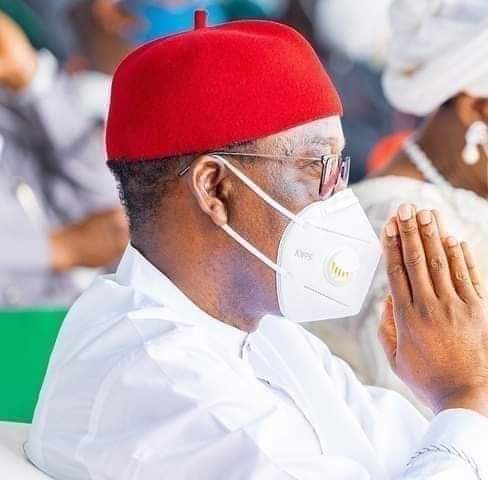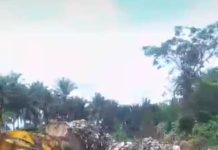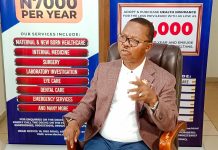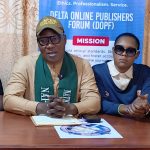The State Governor, Dr. Ifeanyi Okowa, while inaugurating the State CARES Steering Committee, tasked the 9-member Committee, to provide oversight and policy guidance for the effective implementation of the programme
The State CARES Steering Committee is chaired by the Commissioner for Economic Planning, Dr. Barry Gbe, who explained that the programme, besides providing guidance and oversight during the lifetime of the CARES programme, the Steering Committee would meet frequently to consider issues affecting the programme and take appropriate action, as well as consider and approve annual work plans.
Dr. Gbe added: “The Steering Committee would also provide periodic updates to the Governor every six months, or as may be required”.
Lady Patience Ogbewe, Director, Overseas Development Assistance, revealed that the Nigeria COVID-19 Action Recovery and Economic Stimulus (NG-CARES) programme is a short-term response to the economic crisis occasioned by the outbreak of the corona virus pandemic in Nigeria .
Lady Ogbewe said that the Delta COVID-19 Action Recovery and Economic Stimulus (CARES), is designed to support budgeted government interventions at the state level, which focus on targeting existing and emerging vulnerable and poor households, farmers, as well as Micro and Small Enterprises (MSEs ) affected by the corona virus-induced economic crisis.
She explained that the Programme Development Objective (PDO) is to expand access to livelihood support and food security services and give grants to poor and vulnerable households and firms.
The programme outlines a two-year financial support to states to achieve results in three main Result Areas, she stressed.
She disclosed that Result Area 1 is about increasing cash transfers and livelihood support to poor and vulnerable households by supporting the scaling up of existing safety net interventions at the state level, while the safety net interventions would expand the coverage of social transfers, labour intensive public work opportunities in the social sectors, livelihood grants and social service infrastructure micro projects.
Speaking on Result Area 2, she stated that the focus would be on increasing food security and safe functioning of food supply chain for poor households. It would support scaling up interventions that help farmers increase food production and facilitate smooth functioning of the food supply chain.
The interventions supported by Result Area 2 include provision of seeds, fertilizers and agricultural extension services to farmers, opportunities to improve agricultural infrastructure, provision of agricultural inputs for mitigating food loss and upgrading wet markets to allow safe buying and selling of food produce.
The focus of Result Area 3 is on facilitating recovery and enhancing capabilities of Medium and Small scale Enterprises (MSEs). It would support scaling up interventions that help MSEs, through grants to support post COVID-19 loans, grants to support operational costs and enhance ICT capabilities.

















